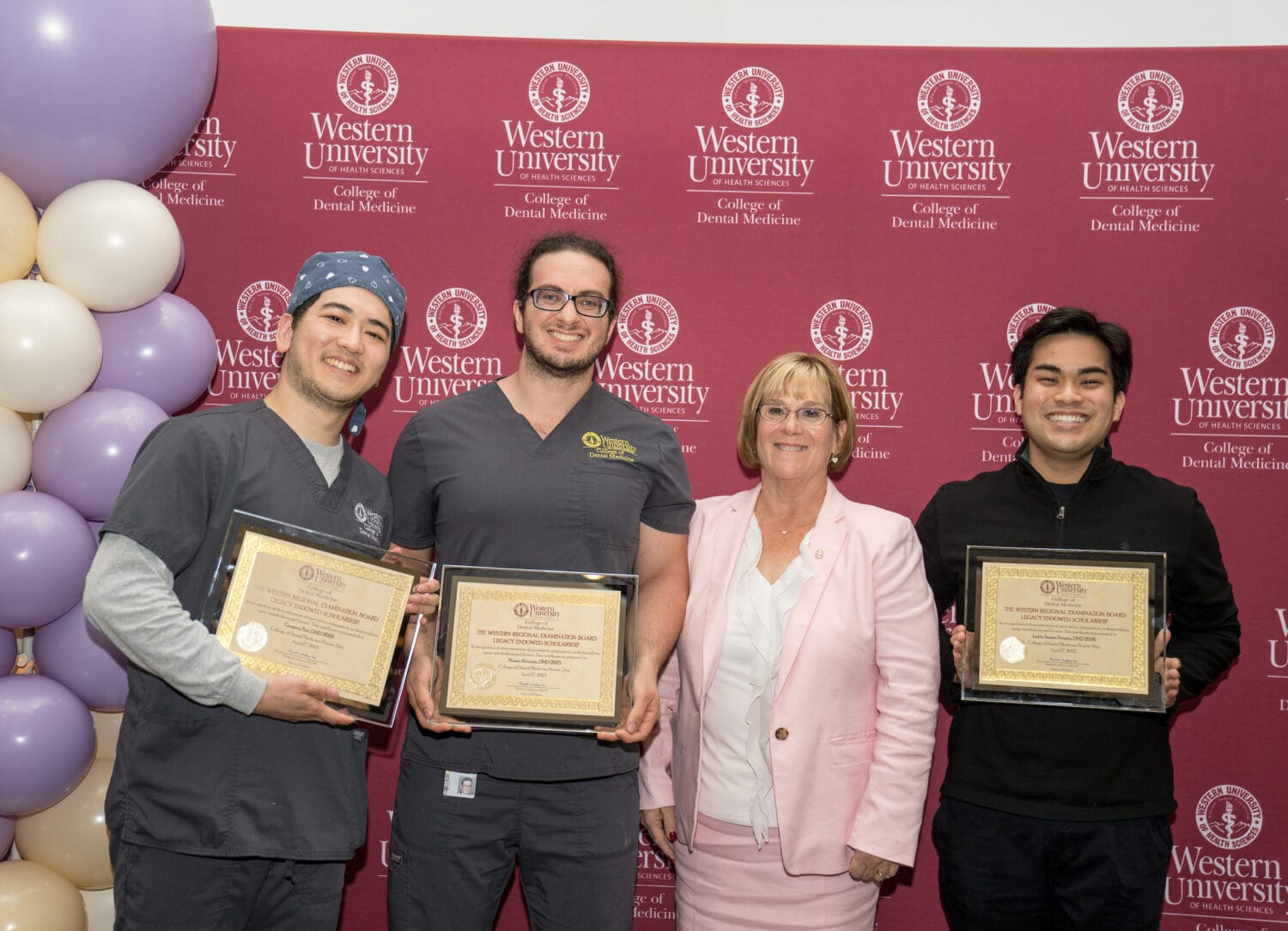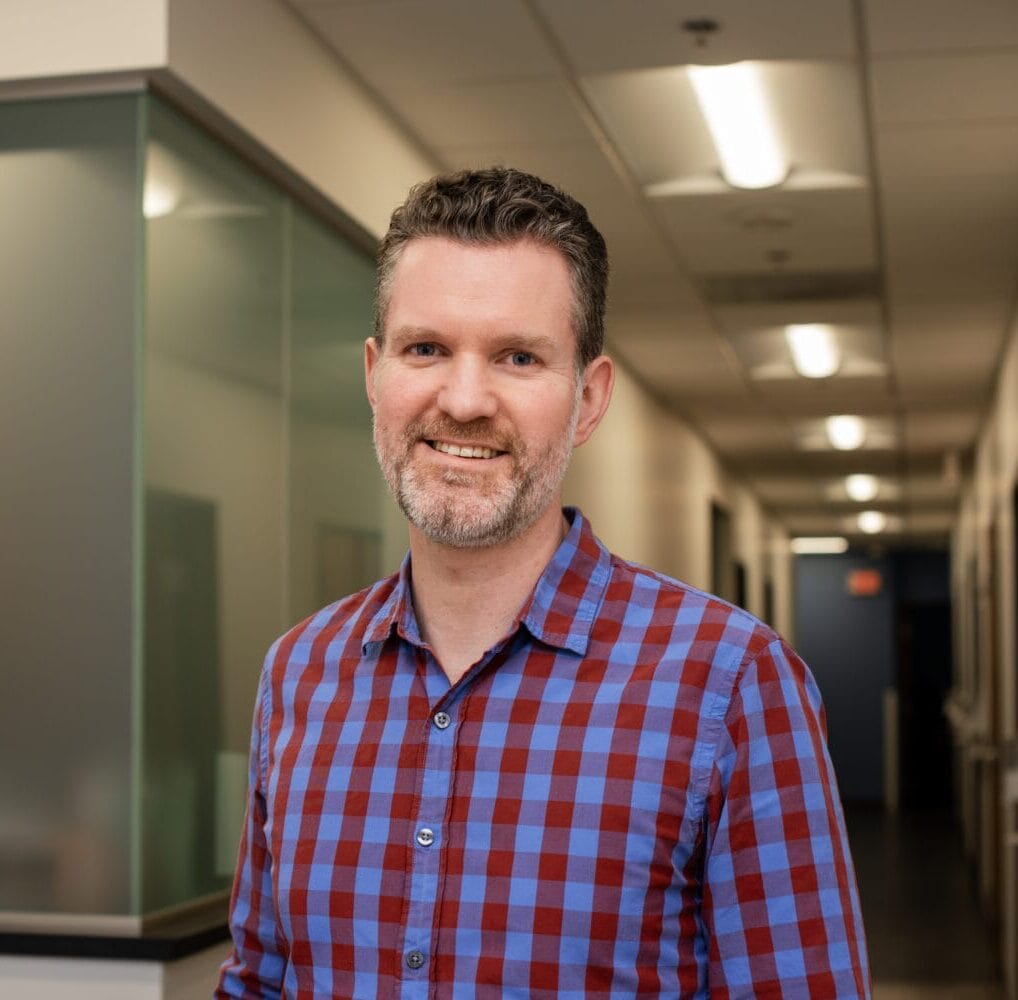Healing the healer’s mind: Elevating mental health support for WesternU COMP-Northwest students
It is no secret that the process of becoming a physician is mentally and physically challenging. In fact, many medical students experience increased feelings of anxiety, depression, and uncertainty as they begin medical school. That is why Western University of Health Sciences’ College of Osteopathic Medicine of the Pacific-Northwest (COMP-Northwest) is developing new systems and strategies to meet the mental health needs of our students.
“We have started a Mental Health Task Force, and we are using a systems approach to look at many different facets of mental health,” shared COMP-Northwest Site Dean and Assistant Professor of Behavioral Medicine and Psychiatry Mandilin Hudson, DO ‘09. “It’s helping us to have a wide lens, rather than just focusing on individual counseling, to think about how we can change our entire campus culture to promote mental health.”

In July, COMP-Northwest hired its first full-time mental health provider, Michele Ribeiro, EdD, ABPP. Dr. Ribeiro joins WesternU with a wealth of experience in the mental health field and higher education. She is a licensed psychologist and board certified in psychology and group psychotherapy. In her position, Dr. Ribeiro provides individual and group therapy, develops programs, supports student campus wellness groups, and provides consulting services to faculty regarding mental health support for students.
Dr. Ribeiro, with the support of the Mental Health Task Force, is taking a systemic approach to the mental health needs of COMP-Northwest students. She is exploring student mental health supports related to crisis management, educational programs, community building, life skills development, social marketing, and more.
“In the task force, we are using a framework that parallels best practices nationally,” said Dr. Ribeiro. “We are currently in a landscape analysis to see where our focuses need to be.”
This comprehensive approach to student well-being ensures all students are receiving care that is relevant to their needs. This is made possible through research conducted by COMP-Northwest faculty.
“We need to be evidence-based in our approach because it ensures we can actually address the problems students are experiencing,” said Vice Chair and Associate Professor of Anatomy Edie Sperling, DPT, OCS.
Dr. Sperling’s area of focus includes the effects of medical school on mental health. In her research, Dr. Sperling has explored the physical symptoms of stress across multiple graduate-level health care disciplines on the WesternU California campus. She plans to extend this study to COMP-Northwest students in the future. This research will provide a baseline for the mental health needs of students, which the Mental Health Task Force will then use as a guide when developing effective interventions.

In addition to research, three students are members of the Mental Health Task Force, providing a unique perspective to the mental health needs of COMP-Northwest students.
“When Dr. Ribeiro asked me to join the task force, I saw it as an opportunity to have a say in this part of medical school and how we can make resources available for students,” said COMP-Northwest student and pre-doctoral teaching fellow Sydney Jennings. “We need to hear the student voice, so we can know if the resources we’re providing are helpful or if we need to adjust and change direction.”
With the development of these new systems and programs, Dr. Ribeiro is optimistic that these changes will positively impact our students. “My long-term goals are two-pronged. One prong is to continue to support and develop the mental wellness of medical students as they continue their journey through medical school. The second prong is that, as the students feel healthy and move into their professional careers, they can not only positively impact their patients’ physical and mental health, but also address systems of health and wellbeing as well,” said Dr. Ribeiro. “The hope is that they are healthy and that their purpose of being a doctor allows them to stay whole for the patients that they serve.”



